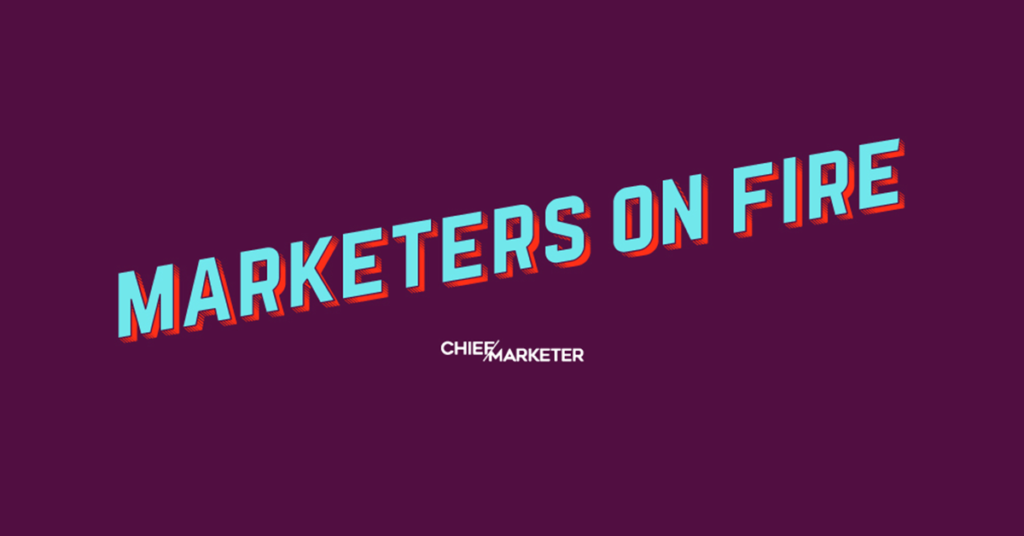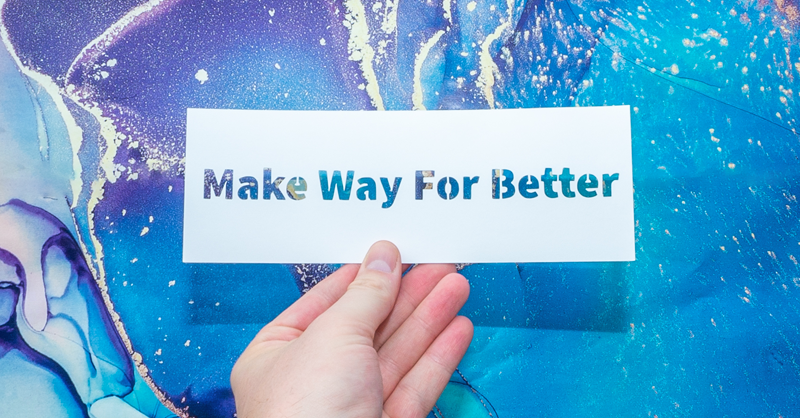The collective health of the globe’s population has been thrust into the spotlight over the past two years. But the result of our increased focus on battling one particular virus—albeit justified—has been the postponement of preventative and routine healthcare. According to a study from the Journal of the American Medical Association cited by Labcorp, one in five adults delayed their healthcare and 57 percent of adults experienced negative health consequences as a result. Market research conducted by the brand also indicated adults’ limited understanding of routine healthcare tests and treatments.
With its latest campaign, “Make Way For Better,” Labcorp is seeking to educate consumers on preventative care while also pointing to its consumer testing line, Labcorp on Demand. We spoke with Amy Summy, Labcorp’s first CMO (who joined the company right at the onset of the pandemic, no less) about the campaign’s strategic goals, lessons learned from its first foray in influencer marketing, how its purpose has evolved and the company’s strategy for growth.
Chief Marketer: What are the strategic marketing goals of the Make Way For Better campaign?
Amy Summy, CMO of Labcorp: What we’ve been seeing over the last two years with the pandemic is that people aren’t taking care of their routine healthcare, and even treatments. We felt like we needed to educate people that it’s time to get back to your routine healthcare and take care of yourself. We did some market research about what people understood about it. Did they understand what tests they should be taking at different times? [We learned that] there’s a really low understanding of that.
From a business perspective, we are a diagnostic testing and drug development company, so having people go see their doctors includes diagnostic testing. The business objective is to create awareness and educate, but also to say it’s important to go to your doctor and get your testing done. We also have a consumer testing line called Labcorp On Demand. It drives awareness and demand for that, but it’s an overall message.
CM: How did you market this to consumers?
AS: We decided to use social media as the primary tool. It’s a digital marketing campaign, so, paid, owned, earned. The campaign is in over 70 airports for a couple of months. This was our first time trying influencers at this scale. It’s worked very well relative to some of the other campaigns we’ve done.
CM: Were there any lessons learned that you’re going to apply to future campaigns?
AS: When we first launched it, we had an opportunity to push people to go find their provider. We said, “talk to your doctor.” I would like us to say, “and what’s your zip code? These might be some telehealth companies or doctors…” A lot of people don’t have doctors. The younger you are, the more likely you are to be on your own. For millennials, as high as 70 percent don’t have a doctor. Generally, it’s over 50 percent. It’s this idea that you can do it on your own through our on demand line. However, in the future I do want to help people go through the journey of finding their doctor if they don’t have one.
The other thing is that with our healthcare plans and our healthcare customers and employer customers, we could take this whole concept and co-brand it with them for their audience. Because the message isn’t really about “go to Labcorp.” It’s more about taking care of your health, so it can come from us and a healthcare plan as well.
CM: Was this campaign more of a B2C approach relative to others?
AS: Our business model is primarily B2B, but it’s more B2B2C, because we serve patients—even if it’s through doctors and hospitals. We have 2,000 patient service centers. We’re in hundreds of Walgreens. We do a lot of patient-level marketing and outreach. I would put this in that category.
CM: How has your marketing changed over the past two years, in light of healthcare being more of a focus for people?
AS: I’m the first CMO at Labcorp. I started at the very beginning of pandemic. We had a new CEO who really believed in marketing, and I came on a few months after him. Early on, I had two gut feelings. One was that you could feel the seriousness of the pandemic. We are a global company, so by the time it got to the U.S., it had already affected our business in China. Testing was at the center of it at the beginning, and we’re behind almost every single vaccine and treatment. Our clinical trial business has been supporting those.
At the same time, as the new CMO and the first CMO, I was trying to figure out what marketing means for Labcorp. It’s basically a function that didn’t exist, or it existed in pockets. One of the fundamental questions was, what does the brand stand for? That made us realize how important we were to society and the role we are expected to play. That carried us into the spotlight—and then we changed the brand. It wasn’t intended to change the brand, but it all happened at the same time. We wanted to be the source for critical information on COVID.
CM: What’s your strategy for growth at the brand?
AS: The top areas on my mind are new markets and customer experience. The new markets are focused on the digital health, consumer area. Those are emerging markets that are growing, and we have a significant role in those already. We need to build more of our capabilities around that. Oncology is another new market. Cancer is not new, but there’s so much advancement going on that we need to drive into the market and lead.
Customer experience is a big one. Consumerism is hitting all of healthcare. When we look at our business, we’re looking at how we are serving our healthcare customers or our employer customers—everything from educating our customers to helping them interpret their results better. When you get a healthcare result, do you know what that means? Is it on your app? Can you share it with your doctor? Those are all things that are front and center as an expectation. Our industry is moving towards customer experience and helping people navigate a very complex health system.
CM: How do you set yourself apart from competitors in the marketplace?
AS: We have two major businesses. One is a diagnostics testing company that most people in the consumer space know us for, but the other half of our business supports clinical trials. So, we have two major competitor sets. We’re the only combined company in the market. In both of those spaces, we’re very science-driven. If you’re going to your doctor and you have a serious condition, you want to know you’re getting the most advanced tests and the best treatment. That is all rooted in science. We have over 2,500 MDs and PhDs, so it’s core to who we are. We have the largest data clinical data set in the world. That helps researchers dig for how they cure or treat the next disease. Data is the way we’re going to get advanced treatments.
The last thing is, we acquire small companies and we also innovate from within. We’re an incubation place for other innovators. A lot of science comes from small labs and independent scientists. That’s great if you just want to work in your market, but if you really want to bring it to everybody, you need a company that can partner with you. I think of it as an innovation factory, internal and external.
CM: For those marketers hoping to ascend to the C-suite someday, what qualities should they should focus on mastering?
AS: I’m passionate about really taking the time to understand the business language. Your business leaders don’t really speak in marketing lingo. Think about how you connect what marketing does to how the business operates, and how they think about growth, revenue and acquisition. Marketers have different skills. Some are super creative, some are very analytical—there’s so many different types. Be passionate about whatever you are.
Personally, I always naturally go to the customer. One of my first questions here was, who are our customers? Not the companies that we sell to, but the people. What makes them tick, and how do you get to them? However, I don’t feel like there’s a specific playbook. If you’re at Pepsi, you might be a different type of marketer versus here at Labcorp. It’s figuring out what your company needs and then leaning into that.
CM: What are the top marketing trends that the industry should be keeping an eye on right now?
AS: There’s a lot of talk about platforms like TikTok and Snapchat. Our new campaign did experiment with TikTok. If there’s one function in a company that needs to be experimenting on things, it’s marketing. So, let people experiment and see what works. Second, we’re lucky in that first-party data is something we have, and we just need to maximize the use of it. But if I were a marketer that didn’t have that, that would worry me. The last one is customer experience. Consumers are really in control and I think it affects all of our industries. And if you’re not paying attention to that, your customer base is going to erode. It’s just a matter of time.







